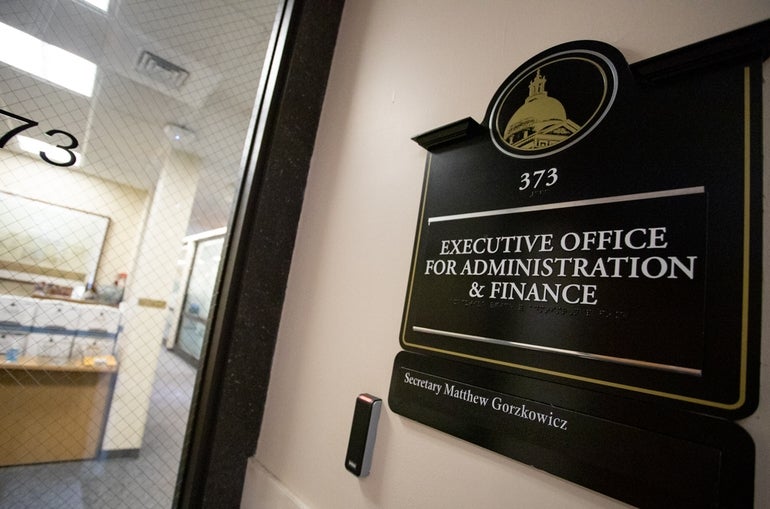The Massachusetts Department of Revenue revealed Wednesday preliminary tax revenue collections for April were $4.782 billion, which is $2.162 billion, or 31.2%, below collections from April 2022.
April’s collections come in at $1.447 billion less than DOR’s benchmark for the month.
Collections for Massachusetts for fiscal 2023 through April are down $2.174 billion, or 6.3%, compared to this time last year. Collections have totalled approximately $32.317 billion.
“The decrease in April collections in comparison to April 2022 is primarily driven by a decrease in non-withholding income tax,” DOR commissioner Geoffrey Snyder said in a press release on Wednesday. “The decline in non-withholding income tax is mostly attributable to a decrease in capital gain tax collections and an increase in PTE members applying credits to reduce their tax payments.”
April has been the state’s best single month for collections for a calendar year in eight of the previous 10 years, according to the DOR. April’s strength comes because it is the peak for tax filing season and payments made with returns often happen in April, while refunds are often spread across February, March, and April. Additionally, the first income estimated payment installment for the current tax year is due in April.
Some of the major issues in April for the DOR are income tax collections coming in at $3.125 billion, which is 33.3% below benchmark and $2.129 billion less than April 2022. At the same time, income tax returns and bills total $1.991 billion, which is 44.4% below benchmark and 49.9% less than April 2022.
“That’s a pretty substantial shortfall, and it really does change the tax trajectory for the fiscal year,” said Evan Horowitz, executive director of the Center for State Policy Analysis at Tufts University in Medford. “I don’t think it imperils state spending or the solvency of the current fiscal year, but I do think it means there’s not going to be a lot of money to play around with at the end of the year. It really does tighten the rings of this fiscal year.”
Meals tax also came in under the benchmark at $103 million, which is $3 million below benchmark but $5 million more than April 2022.
Positives came in an increase in sales and use tax collections for April, which totaled $757 million and was $17 million or 2.3% above benchmark. The sales and use tax collections was also $22 million, or 3.0%, more than April of the previous year.
Withholding tax collections and meals tax both failed to reach their benchmarks but came in at more than April of the previous year.
Income tax estimated payments, corporate and business tax collections, and “all other tax” collections came in above the benchmark for April, but were less than collected the previous year.
The significant drop in April tax collections means state officials, who have been engaged in a prolonged era of spending growth, now face the kind of spending management decisions that some in elected office on Beacon Hill have never faced and which haven’t surfaced since the budget tensions of Gov. Charlie Baker’s first term.
Through 10 months of fiscal 2023, Massachusetts has collected $703 million less than state budget chieftains originally expected to haul in by this point when they crafted benchmarks for the cycle, a reversal from the roughly $870 million above original benchmarks the state reported through March.
“The decrease in April revenues largely represents a previously understood exposure to the fiscal year 2023 budget from capital gains and the timing of taxpayers’ use of pass-through-entity credits that we are reviewing closely and will continue to monitor over the final two months of the fiscal year,” Administration and Finance Secretary Matthew Gorzkowicz said in a statement. “We remain confident in our ability to work with our partners in the Legislature to adjust and utilize available resources to manage the budget and close the fiscal year in balance.”
Gorzkowicz and the Gov. Maura Healey Administration did not announce any immediate budget decisions. The secretary signaled he does not currently believe they will need to execute budget cuts, known as 9C cuts, to manage the shortfall. Without offering specifics, the administration also speculated about using one-time funding sources generated by prior year surpluses.
The sudden, precipitous drop after more than two years of rapid revenue growth alters the atmosphere on Beacon Hill, where lawmakers and Healey have been pursuing aggressive increases in state spending and sizable new tax relief.
With only two months remaining in the fiscal year, it could be difficult to trim state spending in a meaningful way.
Massachusetts had more than $7 billion stashed away in its rainy day long-term savings fund as of March 14, according to figures House Democrats presented in late April, and state government could tap into that money to paper over gaps this year.
The House in April approved a $56.2-billion state budget for fiscal year 2024. Its plan is built on the assumption that Massachusetts will collect $41.4 billion in tax revenue next year, which legislative and Healey administration budget chiefs agreed to in January, as well as the initial impacts from a tax relief bill whose eventual size could grow to $1.1 billion annually.
Senate Democrats are expected to roll out and then approve their own budget bill this month, and they have avoided committing to a specific timeline for a response to the House’s tax relief proposal. Healey administration officials said they don’t currently plan to revisit the revenue estimates being used to build the fiscal 2024 state budget.
State House News Service contributed to this report.

